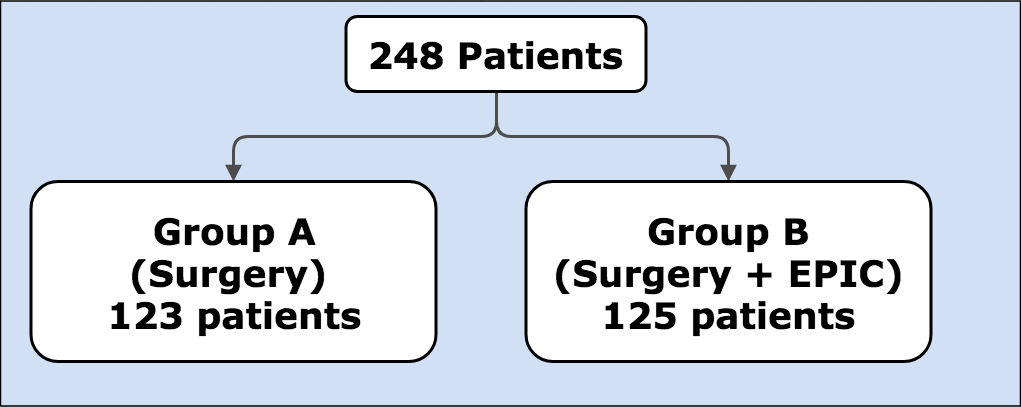Summary:
- How useful is early postoperative intraperitoneal chemotherapy (EPIC) with a gastrectomy in treating resectable gastric cancer? EPIC is a way to give chemotherapy medications directly at the site of cancer in the peritoneum. It is given right after surgery while the patient is still in the operating room. This study found that EPIC can increase survival in patients with Stage 3 cancer, even though it may cause some more side effects, when compared to just surgery.
Link:
Where?
- Korea
When?
- 1998, Annals of Surgery
Impact Factor (IF):
- 8.980
This study looked at the benefits of giving chemotherapy directly at the site of cancer surgery. It is possible that surgery to remove the tumor could actually spread the cancer cells. This could be why gastric cancer often metastasizes to the peritoneum. Researchers hope that treatment right at the time of surgery can minimize this damage.
The researchers looked at Early Postoperative Intraperitoneal Chemotherapy (EPIC) given right after surgery. EPIC is a method of delivering chemotherapy medications. It can be used in patients with peritoneal carcinomatosis (PC). PC means that the cancer cells have spread from the stomach to the peritoneum. So, EPIC is helpful to give medicine right to the peritoneal cancer cells.
248 patients participated in this experiment. They were randomly assigned to a treatment group. Patients in Group A only had the surgery. Patients in Group B had surgery and EPIC treatment in the days right after surgery.
 In EPIC, the chemotherapy drugs are dissolved in liquid and passed through the peritoneum. This experiment used two drugs: mitomycin C and fluorouracil.
In EPIC, the chemotherapy drugs are dissolved in liquid and passed through the peritoneum. This experiment used two drugs: mitomycin C and fluorouracil.
- Mitomycin C: attaches to the genetic material of a cell and prevents it from dividing
- Fluorouracil: this drug also stops cancer cells from dividing properly. It may have the name ADRUCIL in Canada.
Mitomycin was given only on the first day after surgery to patients in Group B. Then, they received fluorouracil for the next 4 days after that.
Surgery: All patients had either a total or distal gastrectomy surgery. They also had a lymphadenectomy to remove lymph nodes with cancer.
Results: First, the researchers looked at data from all patients in the experiment. They found that EPIC treatment did not significantly reduce recurrences of disease. So, EPIC was not very helpful in stopping the cancer from coming back. Also, it seemed to cause some side effects like abdominal pain. This could have happened because the process of giving EPIC treatment irritates the peritoneum.
Next, the researchers conducted a subset analysis. This means that they only looked at the data from one specific patient group. They analyzed the results of patients with Stage 3 cancer whose tumors had been completely removed. In this group only, EPIC treatment improved overall survival compared to surgery alone.
Therefore, this study showed that chemotherapy to the site of surgery following an operation can be helpful in some patients, but not others.
Citation:
- Yu, Wansik, et al. “Prospective randomized trial of early postoperative intraperitoneal chemotherapy as an adjuvant to resectable gastric cancer.” Annals of surgery 228.3 (1998): 347. Available from: PMID: 9742917


